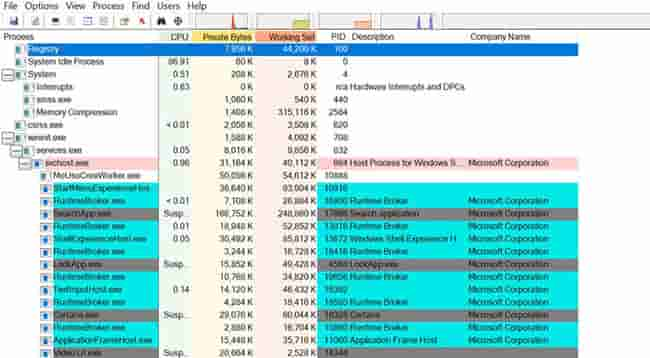The richness of features incorporated into XAMPP makes it worthy of its reputation as an indispensable companion in PHP-based web development and localhost management tool. There’s no denying this, but you’re probably looking for something different.
Gọi Ta Đại Chưởng Quỹ HACK MOD 👇👇👇

Here are the best XAMPP alternatives that you can try. Who knows, you might be able to pick up a few new skills from these recommended toolkits. Join apkmody to find out right here!
1. WampServer
WampServer, like XAMPP, allows you to create a local PHP web dev👇elopment server using Apache. With support for phpMyAdmin, you can manage Structured Query Language (SQL) databases in a Graphical User Interface (GUI) environment.
Although free, WampServer uses a Windows, Apache, MySQL, and PHP (WAMP) stack. WampServer is not cross-platform, it only supports Windows. Although WampServer offers less features than XAMPP, it is not as resource intensive as XAMPP. Plus, WampServer is more user-friendly.
If you’re looking for a lightweight server management tool, WampServer is an ideal choice. However, it does not support Secure Sockets Layer (SSL). Therefore, if you need to support SSL with more complex development tools, you may want to use XAMPP.
2. MAMP
MAMP works on Windows, Mac and supports Nginx. MAMP also allows you to run development code written in Python, PHP, Perl, and Ruby.
The basic MAMP plan allows you to host one site locally at a time and offers limited features. But you will get an unlimited amount of host space when you sign up for MAMP Pro. Plus, you get access to cloud support, which allows you to save projects remotely, and keep up with your development on any computer.
However, you may not need to upgrade to MAMP Pro as all you need for local development, including the SQL server console and GUI, is provided in the basic package. However, this free option does not have built-in SSL for a secure connection. But you may not find that feature necessary for local development.
3. Laragon
If you need a clean, lightweight local development server, Laragon is the right XAMPP replacement. Like MAMP, it supports Apache and Nginx. But the bonus point is that Laragon allows you to inspect the application URL.
With support for many different programming languages, you have the flexibility to develop and host applications locally with Laragon.
One of Laragon’s unique strengths is its asynchronous service orchestration, which makes it super fast. Additionally, it supports version control and various types of databases, including MySQL and NoSQL like MongoDB.
When you start this tool, Laragon will set up a separate virtual development environment on your PC. So in this way the version switch doesn’t interfere with the global stack or database version on the local machine.
4. EasyPHP
When using EasyPHP, you don’t need the extra work of configuring your development tools from scratch. It configures a local development environment for you using the WAMP stack.
In addition to hosting and making applications locally accessible, EasyPHP also offers a beta web server option that turns your PC into a live hosting server. So EasyPHP makes your website accessible from anywhere on the web.
EasyPHP provides an isolated development environment where you can manage, install and update components independently of global variables.
Currently, EasyPHP only supports MySQL. But depending on component development updates, more complex SQL databases such as PostgreSQL and NoSQLs such as MongoDB may be supported in the future. In addition, EasyPHP is currently not cross-platform and only supports Windows operating systems.
5. Winginx
Winginx uses Nginx which is slightly faster than Apache to power local servers. In addition to time and task tracking features, the tool supports local hosting of programs developed with PHP and Node.js.
It has a to-do list system that allows users to manage multiple projects at once, and offers a free online store where you can grab website templates if you get stuck. Winginx also allows you to monitor server logs and debug applications in real time. In addition, it has database management tools, including phpMyAdmin, Mongo Console Client and RockMongo, etc.
Winginx also has a native mail transfer protocol. So if you want to set up Simple Mail Transfer Protocol (SMTP) for your application and test it on a local server, this is a good place to start.
While some features may be similar, each of the tools listed above has its own advantages. Despite being rated as a XAMPP alternative, there’s no denying that this is a great local server management tool.
Conclusion
Ultimately, the development environment you choose can also determine how you go about production and deployment. Therefore, it is important to consider choosing the ideal tool for your needs.
